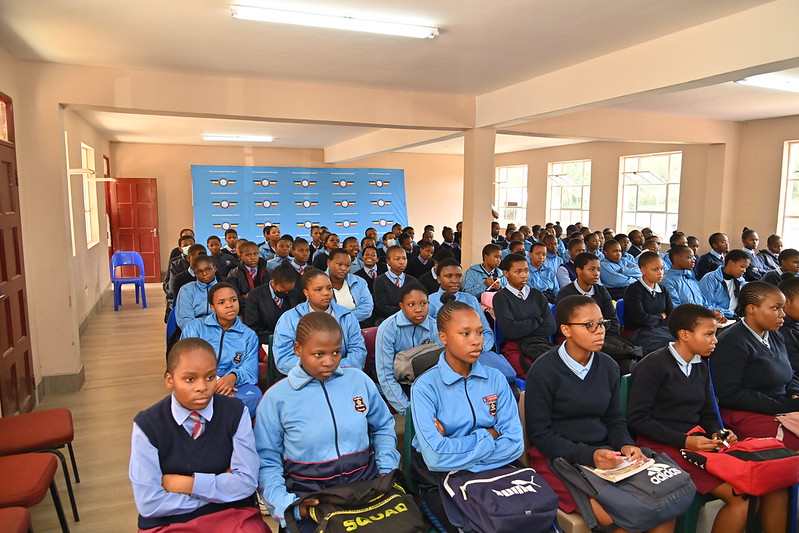
Mbabane, Eswatini, 12 April 2024: The aviation sector, known for its high technical demands and significant economic impact, has historically seen lower participation rates of women, especially in technical and leadership roles.
As part of a broader initiative to tackle these disparities and foster an inclusive environment that supports the careers of women in this dynamic field, COMESA is leading an initiative to sensitive girls on the range of careers available in aviation.
On 10 – 12 April 2024 the Kingdom of Eswatini, in collaboration with COMESA, hosted a three-day workshop in Sibane, Eswatini aimed at promoting gender equality and expanding career opportunities for women in the Eastern Africa, Southern Africa and Indian Ocean (EA-SA-IO) region’s aviation sector.
This event is part of the European Union- funded programme on Support to Air Transport Sector Development (SATSD) implemented by COMESA and partner regional economic communities; East African Community, Intergovernmental Authority on Development, Indian Ocean Commission and the Southern African Development Community.
The event saw significant participation from government officials, industry leaders, and stakeholders from across the aviation industry.
The workshop focused on several key areas, including the need to transform the sector’s corporate culture to be more inclusive and appealing to female talent. Discussions and training sessions highlighted the necessity of adapting workplace policies that support the recruitment, retention, and advancement of women in aviation.
“The African continent boasts of over 52% female population but has less than 5% in the aviation sector. There is therefore “ample room” for all to ensure that the imbalance in supply and demand is filled in the coming years.” The Eswatini Ministry of Commerce, Industry and Trade Director, Ms. Lungile Portia Dlamini said when she address the participants.
COMESA senior gender mainstreaming officer, Tsige Tadele Biyazen said that “The aviation sector needs to transform its masculine corporate culture and identity so as to attract, promote and retain female talent.”
She added that relevant opportunities need to be created at the State, regional and international level for more women to pursue a career in the aviation sector and, similarly, to advance their career on an equal footing with their male counterparts.
One of the main themes of the workshop was the importance of education, particularly in science, technology, engineering, and mathematics (STEM) fields, which are crucial for careers in aviation. The event emphasized the need for policies that not only promote gender equality but also actively support women’s education and career advancement in the aviation sector.
The workshop ended with school awareness visitations to Mbuluzi and Ka-Schiele High Schools led by The Eswatini Civil Aviation Authority (ESWACAA) and professional women in aviation to highlight and inspire the learners on what aviation fields to choose.
The commitment displayed at the workshop reflects a growing recognition of the importance of diversity and gender equality in driving the aviation industry forward. As the sector continues to expand, fostering an inclusive environment will be key to harnessing the full potential of the workforce.
The ongoing collaboration between COMESA, the Eswatini government, and other stakeholders is expected to pave the way for more inclusive and equitable growth in aviation across Eastern and Southern Africa.

